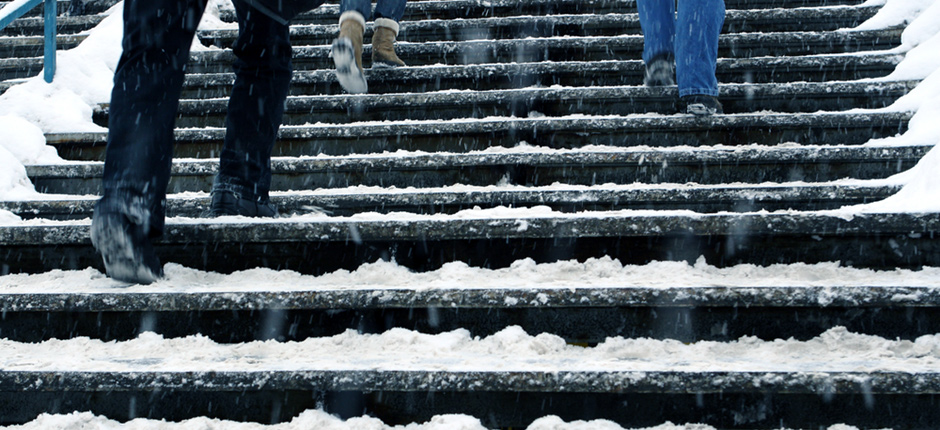With a cold snap set to hit Britain next week, businesses once again have to work hard to keep customers and staff safe from accidents.
Wintry and wet weather is a serious issue for British businesses, especially as slips and trips are the number one cause of accidents in the workplace, costing them over £512 million a year. What’s more, thanks to a change in the way Health & Safety breaches are sentenced, from February this year there will be a significant increase in fines for these kinds of accidents.
Under these radical changes court guidelines indicate potential fines of up to £10million or more for Health & Safety breaches. Therefore, prevention has to be key for management and resourcing teams as we enter a new era of Health & Safety regulation.
And yet businesses are still making basic mistakes when it comes to keeping their floors safe.
Why? Firstly many architects, specifiers and commercial operators make the mistake of using European floor ratings when they first install the floor. The problem is that if a Health & Safety investigator ever wanted to test the floor they would be judging it against UK, not European standards, which are actually more rigorous.
Secondly, it may amaze you given our weather history, but businesses don’t always test their floors against wet, rather than dry conditions. Our view is that wet floors are inevitable in every business environment and it’s essential that you use this as the benchmark. Using the HSE-approved pendulum test and measuring for wet conditions is the only sure way of ensuring that your floors are safe. At Bonasystems we regularly carry out Pendulum tests on behalf of our clients.
Building owners can also have a pendulum test done independently by a member of the UK Slip Resistance Group who will do such tests in a manner that will be approved by the HSE and insurance companies.
Probably the most valuable thing that a company can do in the short-term is to check whether their maintenance and cleaning regime is actually helping or harming their floors.
All floors have a different level of roughness, which can improve grip in wet weather. An inadequate maintenance regime allows dirt to build up within the profile of the floor, making it smoother and more prone to slippages. Simply polishing or sanitising a floor will not remove ground-in dirt, allowing it to build up over time. The traditional mop and bucket approach is possibly one of the worst offenders – spreading dirt around, rather than taking it away.
The good news is that there are plenty of experts that can give you unbiased, independent advice. If you don’t have the knowledge in-house, it could pay dividends to get an external floor expert in to tell you whether your customers and staff are likely to be safe from slips this winter.
If business owners want more information contact us today.
Steven Phillips, Managing Director



